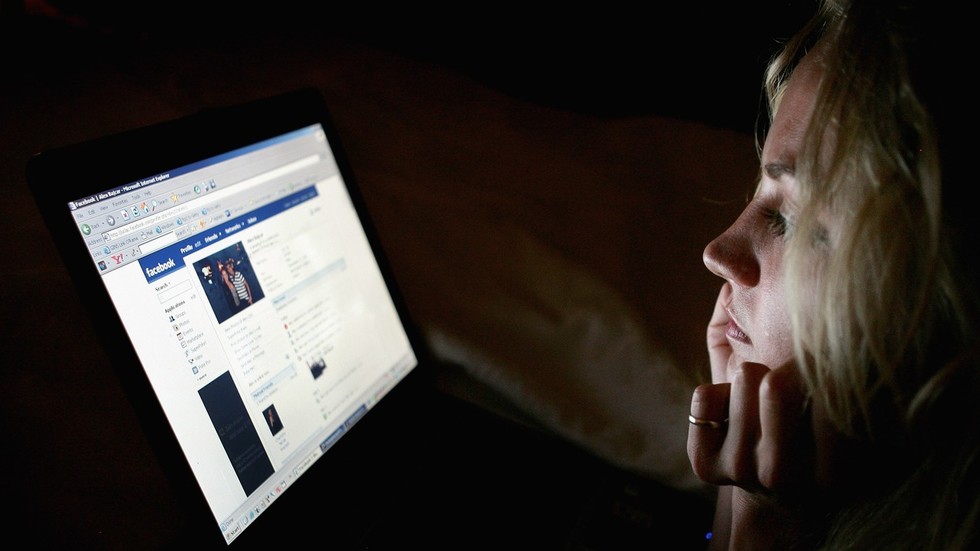
Some services, including WhatsApp, have threatened to withdraw from the UK in protest at the controversial legislation

File photo of a young woman browsing the social networking website Facebook © Getty Images / Chris Jackson/Getty Images
UK communications regulator Ofcom has published lengthy guidance on policing certain elements of people’s online behavior, following the introduction of Britain’s divisive Online Safety Act legislation last month.
In a post outlining its initial codes of practice on Thursday, Ofcom said that tech companies – ranging from social media giants to search engines – will be required to assess potentially harmful material accessible through their platforms, and to take steps to mitigate any threats discovered.
The Act will also require platforms to scan online content, including end-to-end encrypted text messaging services like WhatsApp, for unlawful material such as child-abuse imagery. However, critics of the legislation have said that imposing scanning technology on people’s personal correspondence undermines users’ privacy rights.
“Ofcom is not a censor,” its CEO Melanie Dawes said in a statement on Thursday. “We don’t have powers to take content down,” she said, adding that the regulator’s mission statement is to “tackle the root causes of harm.”
UK technology secretary Michelle Donelan meanwhile, said that the Ofcom guidance would help in “cleaning up the Wild West of social media and make the UK the safest place in the world to be online.”

Read more
The initial guidance, which runs over 1,500 pages, primarily focuses on protecting young people online from grooming or other forms of harmful activities. About one in ten children or young people aged between 11 and 18 have been sent naked or semi-naked images online, Ofcom points out.
Among the myriad recommendations made by the watchdog is for platforms to make children’s social-media profiles more difficult to access by unknown parties. It also recommends that accounts not on a child’s ‘friends list’ be unable to send them direct messages.
Other offenses Ofcom warns of include the sharing of so-called “deepfake” pornography, where artificial intelligence (AI) is used to make illicit content from publicly available photographs or videos.
Some platforms, including WhatsApp, Signal and iMessage, have threatened to withdraw from the UK if they are compelled by the Online Safety Act to compromise the security encryption of their services.
Proton, which bills itself as a “private email service,” said that it would be willing to take the UK government to court to protect its users’ rights to privacy. “The internet as we know it faces a very real threat,” Proton CEO Andy Yen said, according to the BBC last month.
Ofcom says it hopes that its codes will be enforced by the end of next year. Each code will require full parliamentary approval before it is implemented.




